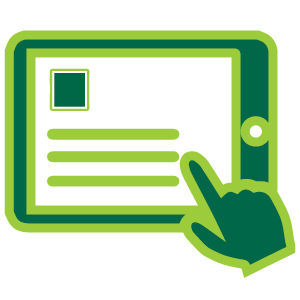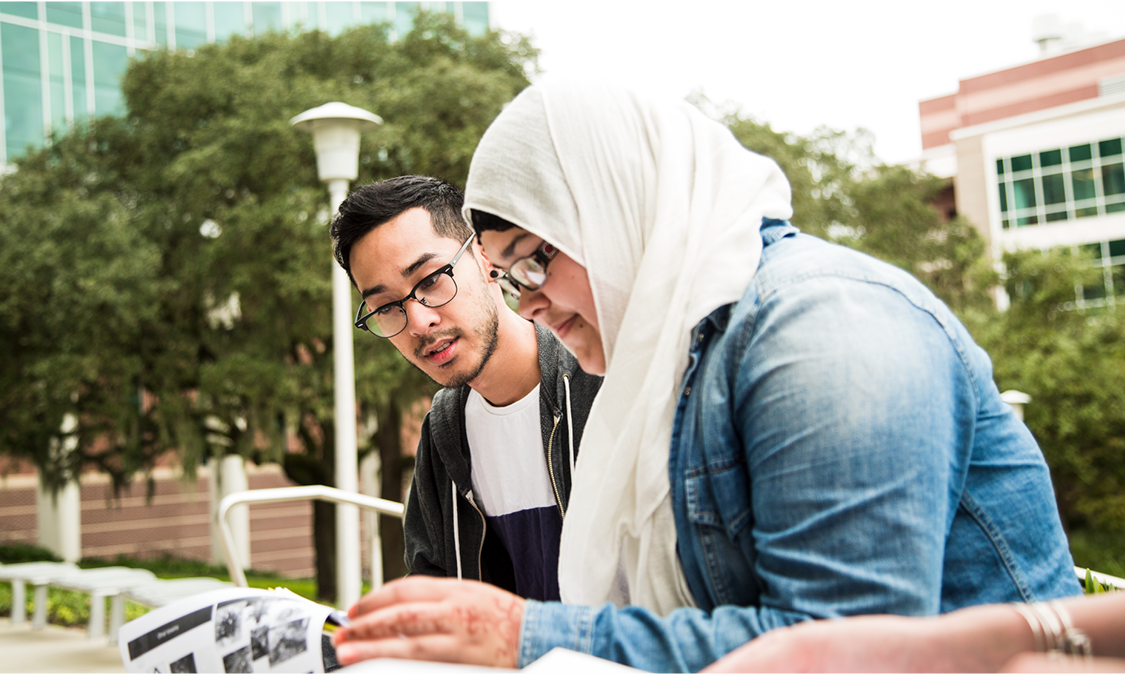College planning can feel overwhelming for students, often because they wait until the last minute to start thinking seriously about their post-high school career. However, it doesn’t have to be a stressful time.
Starting early is the key. Middle school is a great time for students to begin the college journey without the stress and pressure that accompanies high school. Even for students who waited until the end of high school, this guide can help break down college planning into manageable pieces, guide students to the steps they should take and prepare them for their academic life after high school.
STUDY HABITS
Preparing for college success starts with excelling in high school classes:
- Develop strong study habits to graduate high school near the top of the class and stand out to colleges.
- Enroll in challenging courses to develop the focus and time-management skills higher education demands.
- Take standardized tests seriously and seek help for issues.

At USF, admission is competitive, so it’s important students put forth maximum effort to give themselves the best chance of acceptance. We consider applicants based on grades, rigor of curriculum and standardized test scores. Click here to see the latest admissions requirements, deadlines and steps to apply.
EXTRACURRICULAR ACTIVITIES
Colleges want well-rounded individuals who will enhance their student body. A long history of successful extracurricular activities demonstrates qualities colleges look for:

Commitment to stick with this activity

Initiative to push oneself towards success outside of the classroom

Maturity to balance voluntary activities

Interest in self-improvement and skill development
If students are equal in academic achievement, schools may use their extracurricular activities to decide who will receive the remaining class spots.
CAREER INTERESTS
High school offers a low-pressure time for students to explore potential fields and careers that may interest them. The key is for students to create opportunities to get outside their comfort zones, experience new subjects and get adult guidance:
- Engage in community or school activities
- Explore new classes and academic subjects
- Match outside activities with potential careers
- Talk with adults about their career choices and suggestions
COLLEGE COSTS
Needless to say, college can be expensive. Helping students think about the cost of college sooner will help them plan for the expense and identify ways to help pay for it:
- Start a college savings fund
- Research potential scholarship options and review the requirements
- Identify merit-based opportunities, like the National Merit Scholarship Program
- Understand options for paying for college with the FAFSA4caster
The U.S. Department of Education’s Federal Student Aid website offers more information on grants and scholarships for students.

USF COLLEGE PLANNING RESOURCES
To see USF’s latest application deadlines, requirements, forms, waivers and instructions, visit our website.
COLLEGE APPLICATIONS
Completing college applications typically takes some planning and preparation. Students can use these tips to streamline the application process and have the best chance of acceptance.
Research and organize colleges of interest. This research could include determining the requirements for desired schools and the standardized tests required to apply. Identifying these requirements early will help students plan and prepare. This also includes determining the “safety,” “probable” and “reach” colleges for students.
Check college testing requirements. Most colleges will require either the SAT or ACT, but it’s always wise to check each specific school’s requirements. For instance, some colleges will require students to complete the optional SAT essay, while some will not.
Accumulate letters of recommendation. Most colleges require these letters as part of the application process. Encourage students to gather letters of recommendation at least a month before the application deadline. This will allow them to get better letters with more details because the teachers and counselors won’t be scrambling to put something together in time.
Build a portfolio. This doesn’t have to be a literal portfolio of work, but it should be a well-organized “snapshot” of all the extracurricular, academic, work and volunteer experience that will help students stand out in the college application process. This includes awards and accolades. Keeping all these items in one place will make the application process much faster because they won’t be searching through mountains of folders for these documents. Hint: This is much easier if students keep good records.

LAST-MINUTE PLANNING
Students who wait until the end of their senior year to prepare for college still have options. The key is to complete a few essential steps to ensure they get the financial and academic support they need.
Complete the Free Application for Federal Student Aid (FAFSA®) as soon as possible. In addition to federal grants, this financial aid program qualifies students for other types of scholarships and grants. It also qualifies students for low-interest federal loans.
Contact the admissions office staff at the desired college. With the deadline approaching, it is vital students stay on top of any required forms, documents and application materials.
Reach out to the financial aid office for any remaining scholarships or awards they have available. Students can also ask about payment plans, work-study opportunities and on-campus jobs to help offset the cost of college. At USF, we offer many different types of Federal work-study positions for students to earn extra money and gain resume experience.
For detailed student checklists on preparing for college, visit the U.S. Department of Education’s Federal Student Aid website.
